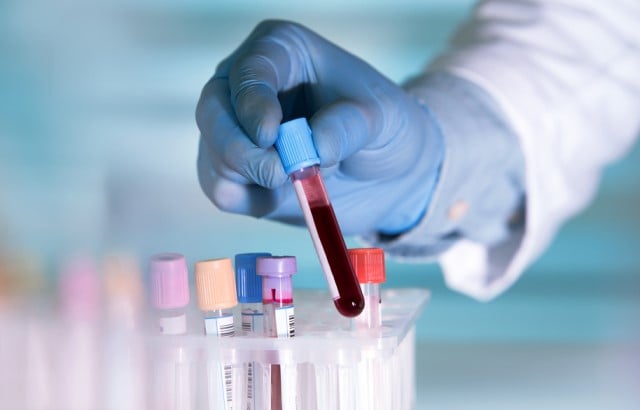Blood
New blood test reduces heart attack and death rates in A&E patients
A first-of-its-kind trial has found that a high sensitivity blood test in A&E can improve diagnosis for one in five patients who have a heart muscle injury. The trial, funded by us and published today in the BMJ, found that the test helped doctors to better diagnose and treat these patients, reducing death and future heart attacks in this group by almost 10 per cent after five years.
The trial, led by Professor Nicholas Mills at the University of Edinburgh, showed that the new test – an update of one which detects levels of a protein in the blood called troponin – could spot more patients with injury to their heart muscle. The better care they received as a result produced a lower rate of future heart attacks and deaths.
While the new test led to improvements for heart attack patients, those who benefited most were patients with a heart muscle injury caused by other heart conditions, such as heart failure, heart valve conditions and heart arrhythmias. The researchers found that these patients saw a nearly 10 per cent drop in future hospital admissions and deaths in the five years after getting the new test, compared to those who had the older, less sensitive test.
Subtle warning signs
The updated test measures very low levels of troponin in the blood much more accurately than older versions of the test. Troponin is released into the blood during a heart attack or when the heart is injured due to other heart conditions. Different troponin blood tests have been used for years by doctors to help diagnose these conditions in people with chest pains and related symptoms.
To assess whether introducing the new test brought any improvement, the researchers studied the results for nearly 50,000 people who arrived at 10 emergency departments across Scotland with a suspected heart attack between 2013 and 2016. They used routinely collected health record data and a pioneering data service – DataLoch – to follow up all participants for five years.
Over 10,000 patients had high troponin levels indicating heart injury using the new test. With the high sensitivity test picking up more subtle warning signs, around one in five of these patients were only spotted by the new test.
Looking deeper
By identifying heart injury in patients who may otherwise have gone unnoticed and untreated, the researchers hope that more people could receive the specialist heart care they need to avoid more serious events in the future.
Dr Ken Lee, Clinical Lecturer in Cardiology at the University of Edinburgh, and the lead author of the study, said:
“In the past, clinicians could have been falsely reassured by the results of the less sensitive troponin test, discharging patients that appeared to not have heart disease.
“This new high sensitivity test is the tool they needed, prompting them to look deeper and helping them to identify and treat both heart attacks and less obvious heart problems. In our trial, introducing this test led to an impressive reduction in the number of future heart attacks and deaths seen in this at-risk group.”
Ahead of the curve
The improvements are now not limited to the 10 Scottish hospitals involved in the study and are likely being seen across the UK. Having already rolled out the new test widely to emergency departments across the country, the UK is now ahead of the curve when it comes to heart attack and heart injury detection.
Professor Sir Nilesh Samani, our Medical Director, said:
“Medical professionals in emergency departments need the most efficient and accurate tools to look after people. This particularly applies to those who arrive with a suspected heart attack. Such a time-sensitive and life-threatening condition requires the very best diagnostic tests.
“It is very encouraging to see that the new test trialled here is better at predicting long-term outcomes for these patients, whether they had a heart attack or a different kind of heart injury. This can lead to improved care for such patients.”
Find out more about our research

